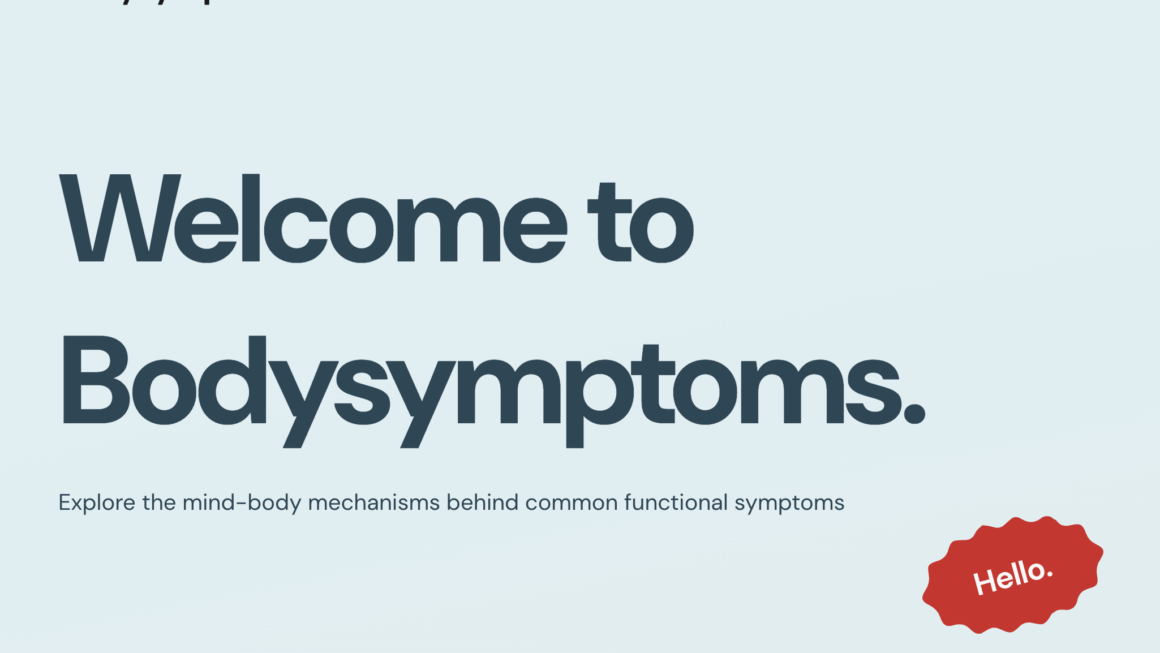Author: Lina Münker. People with FSS frequently struggle to find reasonable explanations for their symptoms. This is potentially due to the complexity of FSS development, suggested to involve a variety of underlying multifaceted interactions from biological, psychological and social domains of functioning, and as well as the various presentations both within and across people. In […]
What are the major factors influencing persistent somatic symptoms, and what does this mean for future care provision?
Author: Nick Mamo. Persistent somatic symptoms (PSS) are surprisingly common – as much as 33% of individuals in primary care, and 53% in specialty clinics experience PSS. The care trajectory for these individuals with PSS can be complex, and outcomes can be quite poor. It is becoming increasingly evident that a big part of the […]
Understanding ‘brain fog’: insights from Reddit discussions
Author: Verónica Cabreira. The term ‘brain fog’ has entered our daily vocabulary and gained significant attention in the context of persistent symptoms of long COVID (Teodoro et al., 2023), but it is agnostic regarding its cause, pathophysiology, and even characteristics of symptom experience. The term was primarily coined by patients, and even though it is […]
Bodily Distress Syndrome (BDS) as a new research concept for adolescents with functional somatic symptoms
Author: Elske Hogendoorn. Functional somatic symptoms are physical symptoms that cannot be fully attributed to a biomedical cause and may arise in the absence or presence of a chronic medical disease. Persistent functional somatic symptoms occur in various medical domains and are given a variety of diagnostic classifications, such as fibromyalgia, chronic fatigue syndrome or […]
Functional cognitive disorders: underrecognised and undertreated?
In the daily clinical practice of diagnosing and treating patients with persistent somatic symptoms (PSS), we see many patients with cognitive symptoms, such as memory problems or difficulty concentrating. Some patients experience a lack of mental clarity, also referred to as ‘brain fog’.
EMDR may be effective for treating tinnitus (ringing in the ear)
Tinnitus, also called ‘ringing in the ear’, is the perception of a ringing, whistling, chirping or other sound in one or both ears, with no external source (‘phantom noise’). For most people, tinnitus is a temporary affliction; for 10-15% of sufferers, it develops into a chronic problem. Most chronic sufferers lead a fully functioning life. However, in 3-6% of the general population tinnitus becomes a distressing and incapacitating symptom, having a serious impact on daily life and causing insomnia, difficulty concentrating and headaches. Tinnitus can also coexist with depression, anxiety and other psychological disorders.
Stressful life events in patients with conversion disorder
Conversion disorder was given its name by Breuer and Freud, who believed its symptoms originated from the conversion of psychological stress into somatic symptoms. More than a hundred years later, this is still the predominant perspective. However, over the past few years, neurobiological research has been conducted to further explore the disorder. Some researchers argue that recent neurobiological findings contradict the predominant perspective, whereas others believe these findings highlight the mechanism by which psychological stress can result in physical symptoms.
Death anxiety as a potential cause or consequence of PSS
Mortality awareness makes us vulnerable and can lead to a number of psychological defences. Fear of death can be simultaneously conscious and unconscious within the same person. Ten per cent of the general population has an above-average fear of dying and four per cent experiences severe fear of death. Despite these numbers, primary death anxiety has not yet been considered as a leading cause in the development of psychological disorders; the bulk of the literature on the subject has been philosophical and psychological in nature. Clinical research into the association between death anxiety and other symptoms or diseases is scarce and has mainly focused on terminally ill patients. Several years ago, a review was published describing the role of death anxiety in the development of disorders like anxiety, depression and obsessive compulsiveness (Iverach e.a., 2014).
Differences in internists’ communication with patients with persistent somatic symptoms
Although it is known that an effective therapeutic relationship contributes to positive health outcomes, there is reason to believe that physicians’ interactions with patients with persistent somatic symptoms (PSS) differ from their interactions with patients with other chronic disorders. The objective of the study described here was to explore the interaction strategies of internists when communicating with patients with medically unexplained symptoms (MUS) as opposed to patients with medically explained symptoms (MES).









